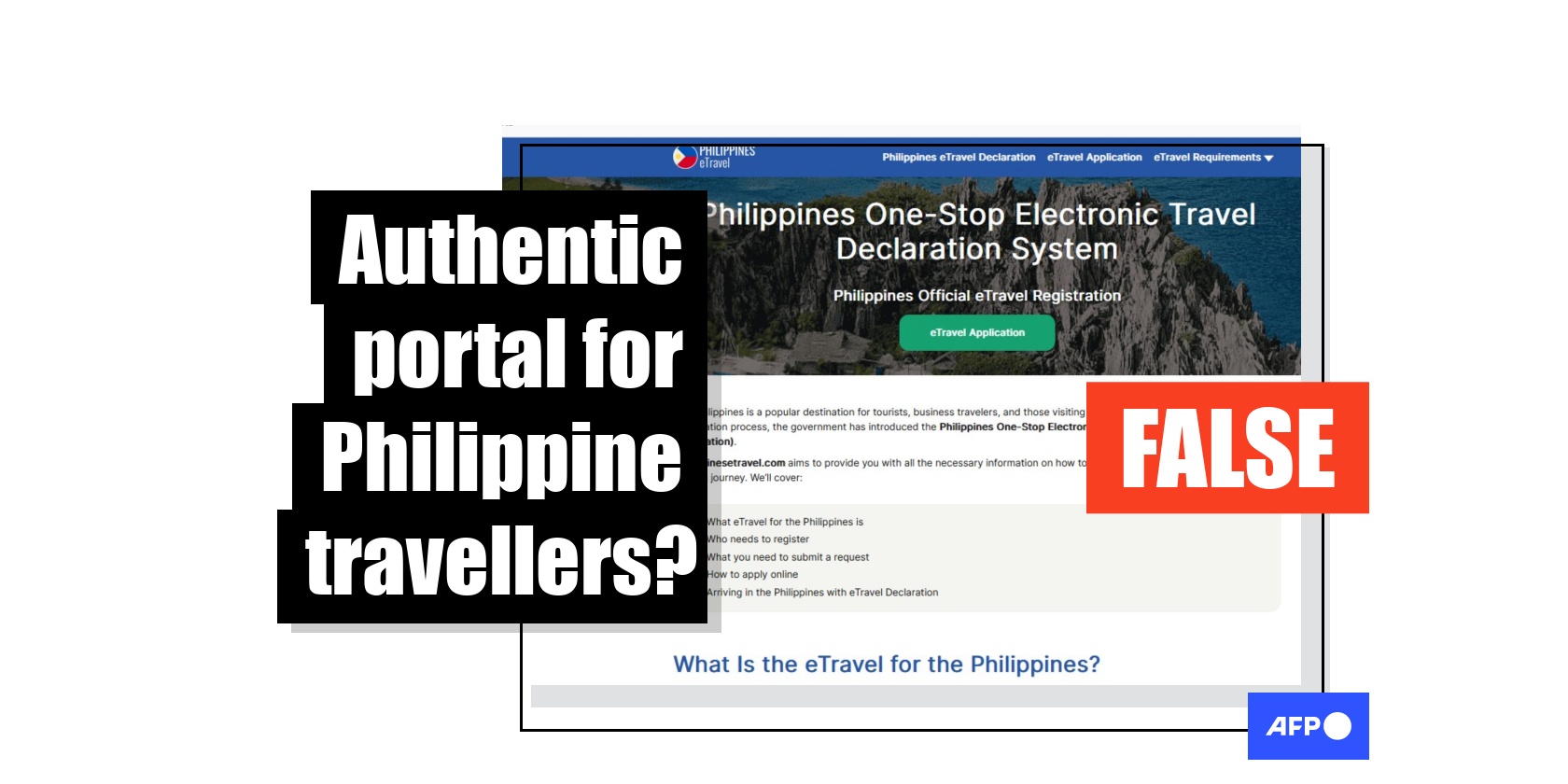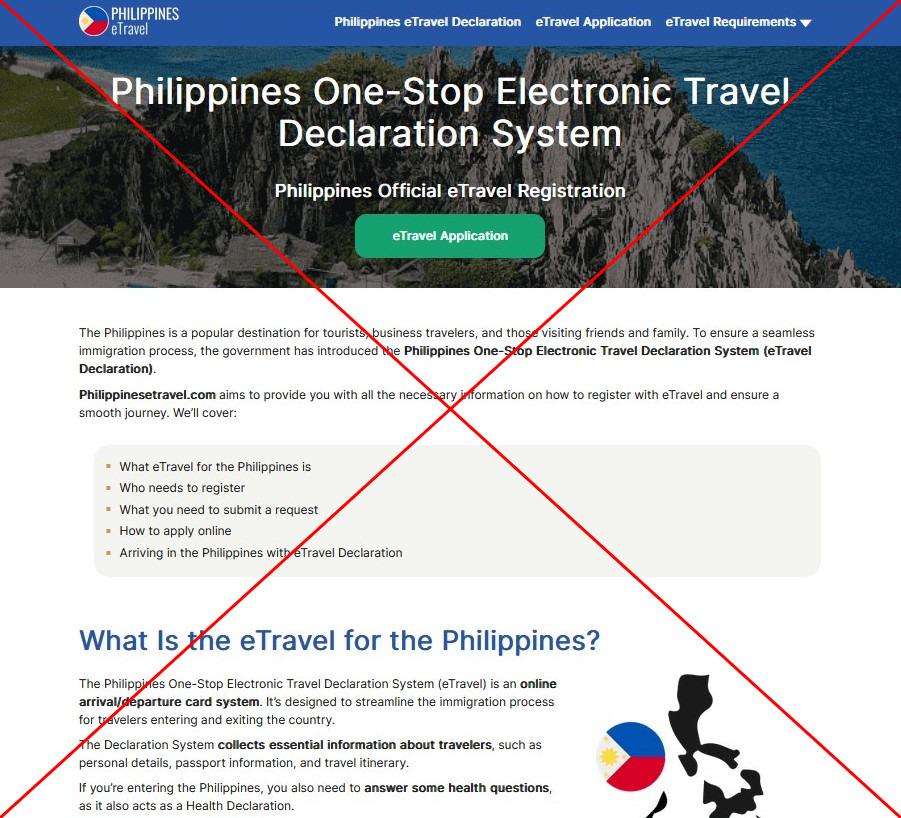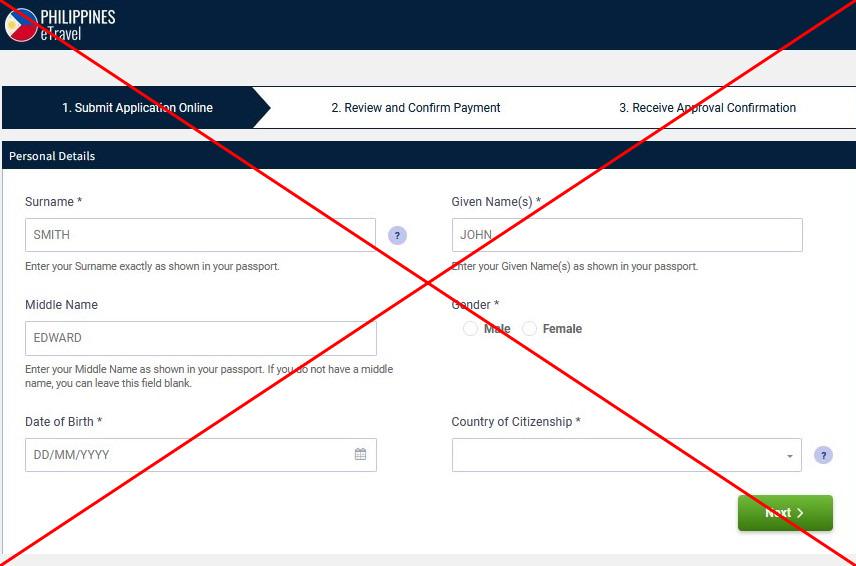
Imposter websites scam travellers to the Philippines
- This article is more than two years old.
- Published on November 30, 2023 at 09:27
- 2 min read
- By Lucille SODIPE, AFP Philippines
A website called "Philippines eTravel" calls itself the country's "one-stop electronic travel declaration system," purportedly designed to streamline the country's immigration process.
It asks for one's personal data and requires a payment of 49 dollars (2,700 Philippine pesos) to purportedly process one's travel registration.


In April 2023, the Philippine Bureau of Immigration stopped issuing paper-based arrival and departure cards and required passengers to register through a government portal before they leave or arrive in the country.
The portal is called "eTravel" and has the URL etravel.gov.ph. The immigration bureau says the site serves as an integrated border control, health surveillance and economic data analysis portal.
But other websites claiming to be the country's official eTravel site and charging varying amounts can be found here and here.
Keyword searches on Facebook found social media posts by travellers who said they were duped by the imposter websites.
"My boyfriend is from the USA, he paid $79 for e-travel. I searched and found there should not be any fee.. can he still get his money back?" one asked in a discussion on a private Facebook group with over 1.5 million members.
"Be careful what site you enter, I went home last year and went to the wrong site to register, I ended up paying $75 or $80," another said.
Hoax websites
Immigration chief Norman Tansingco warned travellers of fake websites falsely claiming to be the government's eTravel portal.
"We urge the public to be vigilant and exercise caution online. There are numerous scams on the internet, and the false use of e-travel credentials to steal data and trick people into sending payment pops up every now and then," Tansingco said in a statement posted on Facebook on October 26 (archived link).
Dana Sandoval, the agency's spokeswoman, separately told AFP on November 25 that more fake sites may appear in December when travel peaks due to the holidays.
"The eTravel (website) is FREE. If you're being charged for it, then it's probably a scam," she said.
A review of the imposter sites shows their web addresses do not use the .gov.ph internet subdomain, which is used to identify Philippine government agencies (archived link).
Below is a screenshot comparison of one imposter site (left) and the official government eTravel portal (right):

Copyright © AFP 2017-2026. Any commercial use of this content requires a subscription. Click here to find out more.
Is there content that you would like AFP to fact-check? Get in touch.
Contact us
